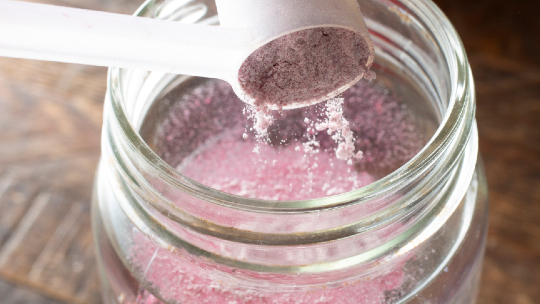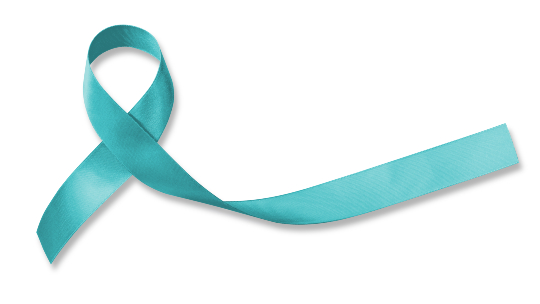If you’re a parent, you know the feeling of watching your child accomplish major milestones in their development: you remember when they said their first word, when they first started to crawl, and when they got their first teeth (oh, those long and sleepless nights!). The minute the first tooth breaks through the gum line your baby can begin to get cavities. And since we know that brushing is the best way to prevent tooth decay, it’s important to start brushing those tiny pearly whites the minute you can see them.
It’s not always easy to get a toothbrush into an infant’s or toddler’s mouth without a serious wrestling match. But as with all new things, when it comes to children, the sooner you introduce them to the feel of a toothbrush in their mouth, the less nervous they are likely to be about the brushing process. When my children got their first teeth, I let them chew on a toothbrush so they could get used to the way bristles felt against their gums and teeth. And it also helped with teething pain. It seemed to make brushing less scary to them.
Besides brushing, you can help promote good oral health at home by not giving your child milk- or juice-filled sippy cups and bottles after their first birthday. This is especially important if your child falls asleep with it in his or her mouth. The sucking reflex is strong—especially while kids are teething. If you’re met with a battle, stay strong: Your child’s teeth will be much healthier from winning that struggle.
According to the American Dental Association, as soon as you see that first tooth peek through the gums, make an appointment to take your child to the dentist—no later than his or her first birthday. (Need help finding one? Use this handy tool.) At this visit, the dentist will check to make sure your child doesn’t have any cavities and will begin a lifelong good habit of dental care and health. It’s important to treat a cavity as soon as it’s discovered. Children with tooth decay sometimes can’t eat normally because it’s so painful to chew. This means they might not get the vitamins and minerals they need, which then could lead to weight loss and stunted growth.
As a parent, you know how tough it can be to get your kids to brush their teeth. But by making them brush at least twice a day, you’re teaching them good habits and ultimately improving their health throughout their lifetime.
 Dr. Baleix completed a Bachelor’s in Biochemistry at Cal Poly, a Medical Degree at Baylor, and a Master’s in Public Health at the Uniformed Services University. Post-graduate medical studies included Medicine at St. Mary’s Hospital, San Francisco, Radiology at Naval Medical Center, San Diego, and Occupational Medicine at the Uniformed Services University, Bethesda. As a Navy physician for 29 years, Dr. Baleix learned the foundational relation of organizational structure and function, and the leader’s role in supporting staff’s ability to succeed. He deployed with Marines to the Persian Gulf and with Joint Forces to Afghanistan. He taught Physical Diagnosis at the Naval School of Health Sciences, chaired Hospital Infection Control in Naples & developed International Occupational Safety and Health protocols for Navy Medicine in Italy. He directed Occupational Medicine, Public Health and Community Services for Naval Health Clinics, Hawaii, led health services for Military Sealift Pacific, and mentored the Afghan military Surgeon General in Kabul. After 2 years as the Medical Director for Tricare-Hawaii’s Multi-Service Market Management Office, John joined HMSA in 2011 to lead healthcare transformation toward more continuous, comprehensive, coordinated, and patient-centered primary care.
Dr. Baleix completed a Bachelor’s in Biochemistry at Cal Poly, a Medical Degree at Baylor, and a Master’s in Public Health at the Uniformed Services University. Post-graduate medical studies included Medicine at St. Mary’s Hospital, San Francisco, Radiology at Naval Medical Center, San Diego, and Occupational Medicine at the Uniformed Services University, Bethesda. As a Navy physician for 29 years, Dr. Baleix learned the foundational relation of organizational structure and function, and the leader’s role in supporting staff’s ability to succeed. He deployed with Marines to the Persian Gulf and with Joint Forces to Afghanistan. He taught Physical Diagnosis at the Naval School of Health Sciences, chaired Hospital Infection Control in Naples & developed International Occupational Safety and Health protocols for Navy Medicine in Italy. He directed Occupational Medicine, Public Health and Community Services for Naval Health Clinics, Hawaii, led health services for Military Sealift Pacific, and mentored the Afghan military Surgeon General in Kabul. After 2 years as the Medical Director for Tricare-Hawaii’s Multi-Service Market Management Office, John joined HMSA in 2011 to lead healthcare transformation toward more continuous, comprehensive, coordinated, and patient-centered primary care.

Bob Lewando is a periodontist and works with the Florida Blue Dental Program. He has an interest in the connection between oral and overall health and has tried to develop dental plans for patients that will try to keep them healthy. Bob enjoys outdoor activity such as hiking, bicycling, or attempting to garden.




